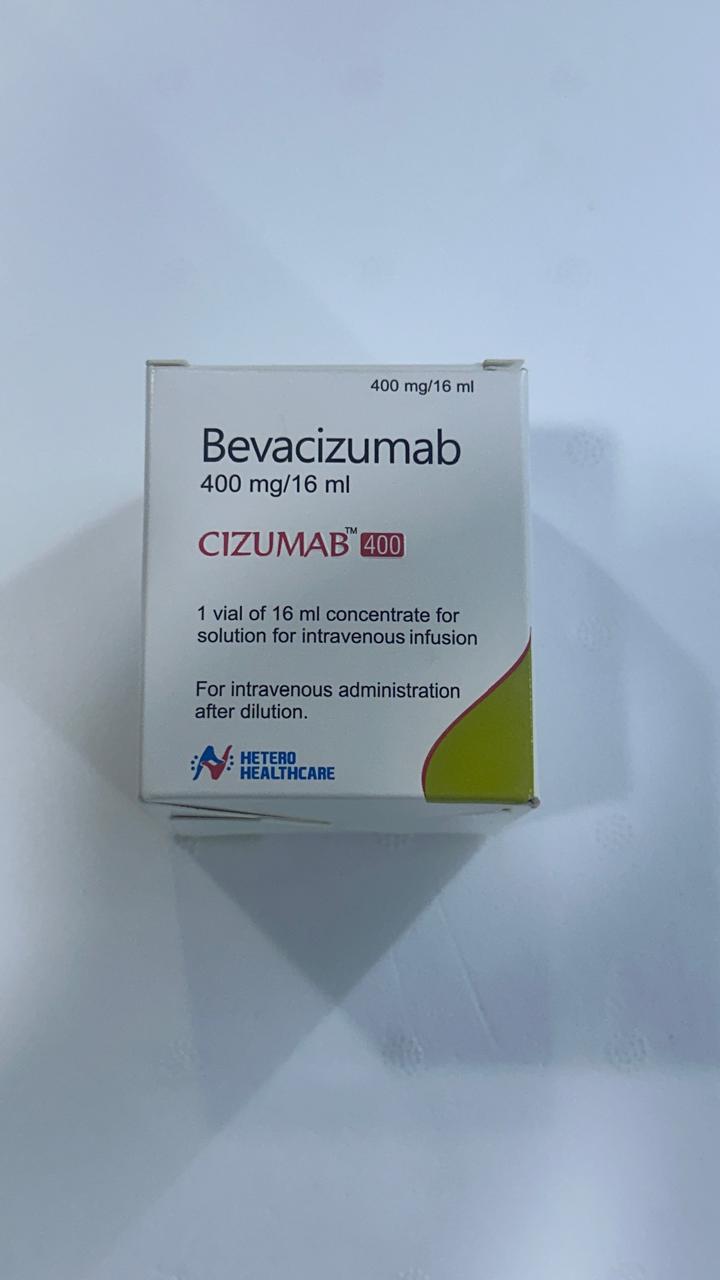Cizumab 400 is a prescription medication used to treat certain types of cancer, including:
- Colorectal cancer (cancer that affects the colon and rectum)
- Lung cancer (non-small cell lung cancer)
- Breast cancer (metastatic breast cancer)
- Kidney cancer (metastatic renal cell carcinoma)
- Brain cancer (glioblastoma)
Composition:
Cizumab 400 is a clear, colorless solution containing 400mg of bevacizumab per milliliter.
Mechanism of Action:
Bevacizumab works by:
- Inhibiting the growth of new blood vessels that feed tumors
- Reducing the amount of blood flow to the tumor
- Starving the tumor of oxygen and nutrients, which can lead to tumor shrinkage or stability
Uses:
Cizumab 400 is used to treat:
- Colorectal cancer (cancer that affects the colon and rectum)
- Lung cancer (non-small cell lung cancer)
- Breast cancer (metastatic breast cancer)
- Kidney cancer (metastatic renal cell carcinoma)
- Brain cancer (glioblastoma)
Dosage:
The recommended dosage of Cizumab 400 is:
- 15mg/kg body weight administered intravenously every 2-3 weeks
- Repeat every 2-3 weeks, depending on the patient’s response to treatment
Side Effects:
Common side effects of Cizumab 400 include:
- Nausea and vomiting
- Fatigue
- Headache
- Dizziness
- Increased risk of bleeding
- Increased risk of infection
- High blood pressure
- Renal damage
- Proteinuria
Recommendation:
Cizumab 400 is recommended for patients with metastatic or recurrent cancer who have not responded to other treatments. Patients should also be advised to monitor their blood pressure and kidney function regularly during treatment.
Important Note:
Patients should not take Cizumab 400 if they have a history of severe allergic reactions, kidney problems, or high blood pressure. Patients should also inform their healthcare provider if they have any underlying medical conditions, such as heart problems or lung problems, before taking Cizumab 400.
Some common brands of bevacizumab include:
- Avastin (Roche)
- Bevacizumab (Roche)
Please note that Cizumab 400 is not available in all markets and may be approved for different indications and dosages in different regions.



Reviews
There are no reviews yet.